Determining the best engine in automotive history is a challenging task, as it involves various factors, including performance, reliability, fuel efficiency, and technological advancements.
Throughout the years, the evolution of car engines has given rise to diverse options, from the classic internal combustion engine to modern electric engines. This article explores the characteristics of outstanding car engines, their contributions to performance, and what makes them stand out in the automotive world.
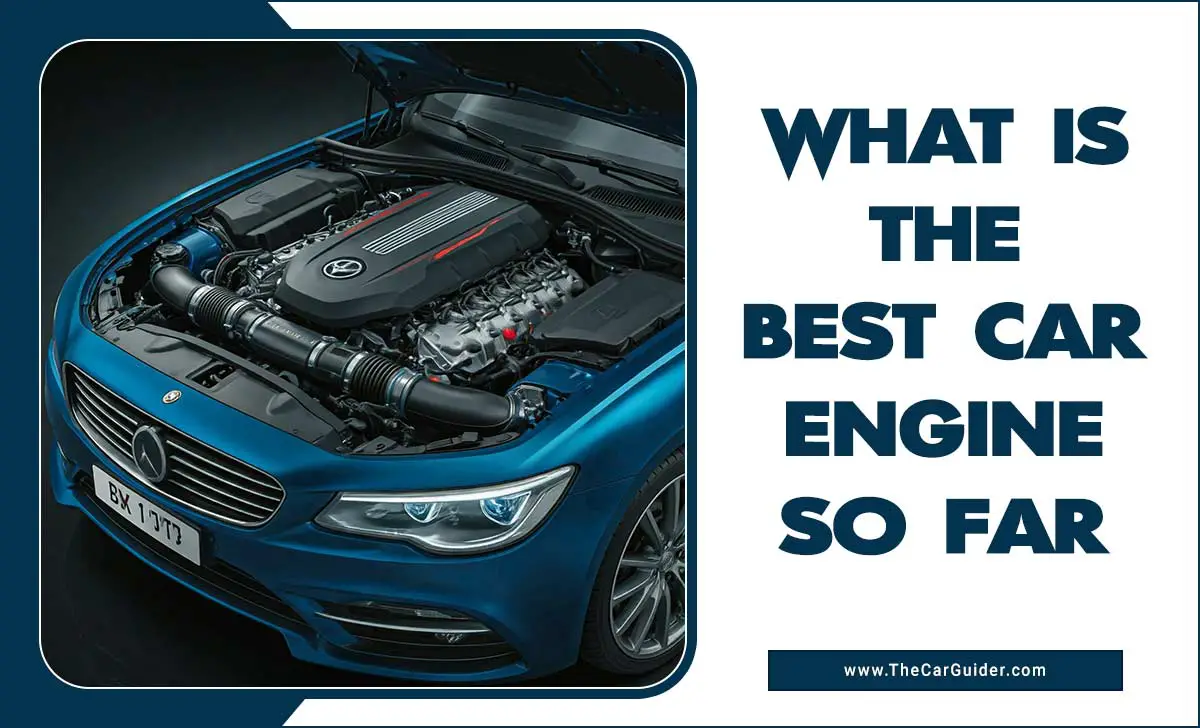
Key Takeaways
- The best car engines combine performance, reliability, and efficiency.
- Ferrari’s 3.9L Twin-Turbo V8 excels in power and throttle response.
- Ford’s 1.0L EcoBoost offers fuel efficiency in a compact design.
- Toyota’s Hybrid Synergy Drive leads in sustainability and low emissions.
- Turbocharging, hybrid technology, and fuel injection are key advancements.
Best Car Engine
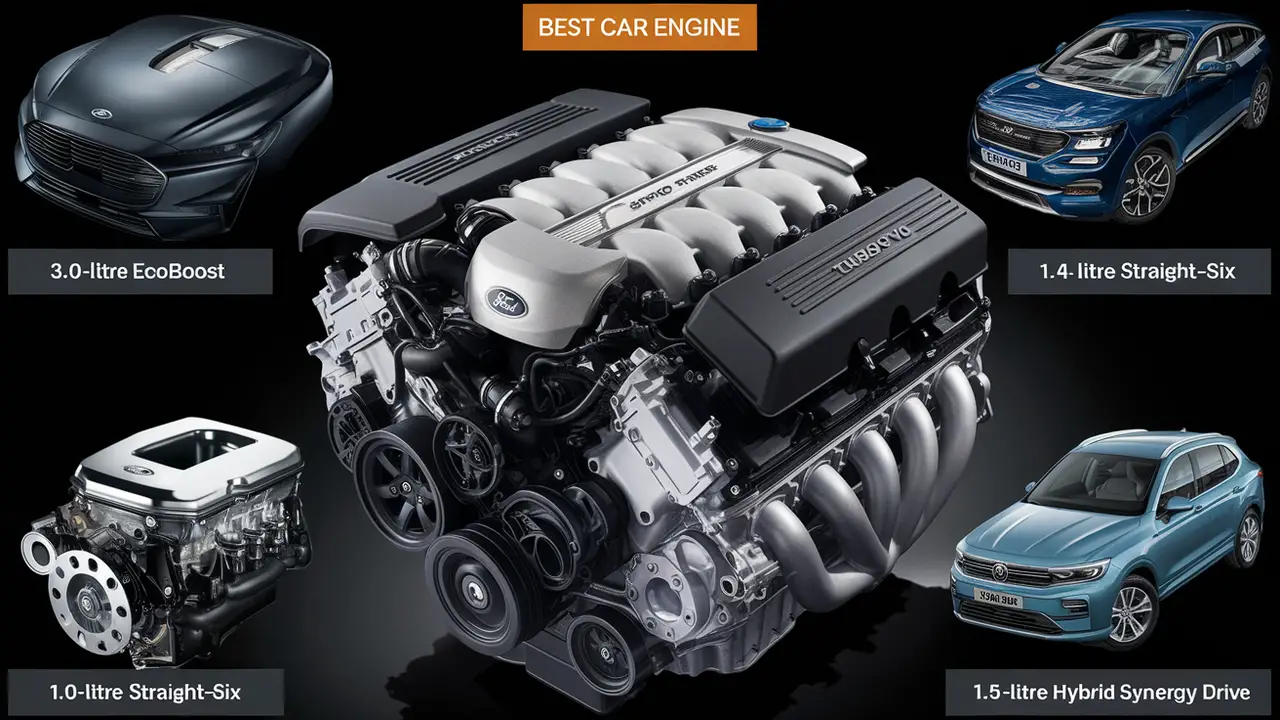
The debate over the best car engine of all time is complex, given that different engines excel in aspects like performance, fuel economy, reliability, and technological advancement. However, some engines stand out based on power, innovation, and efficiency, each bringing a unique edge to the automotive industry.
1. Ferrari 3.9-Litre Twin-Turbo V8
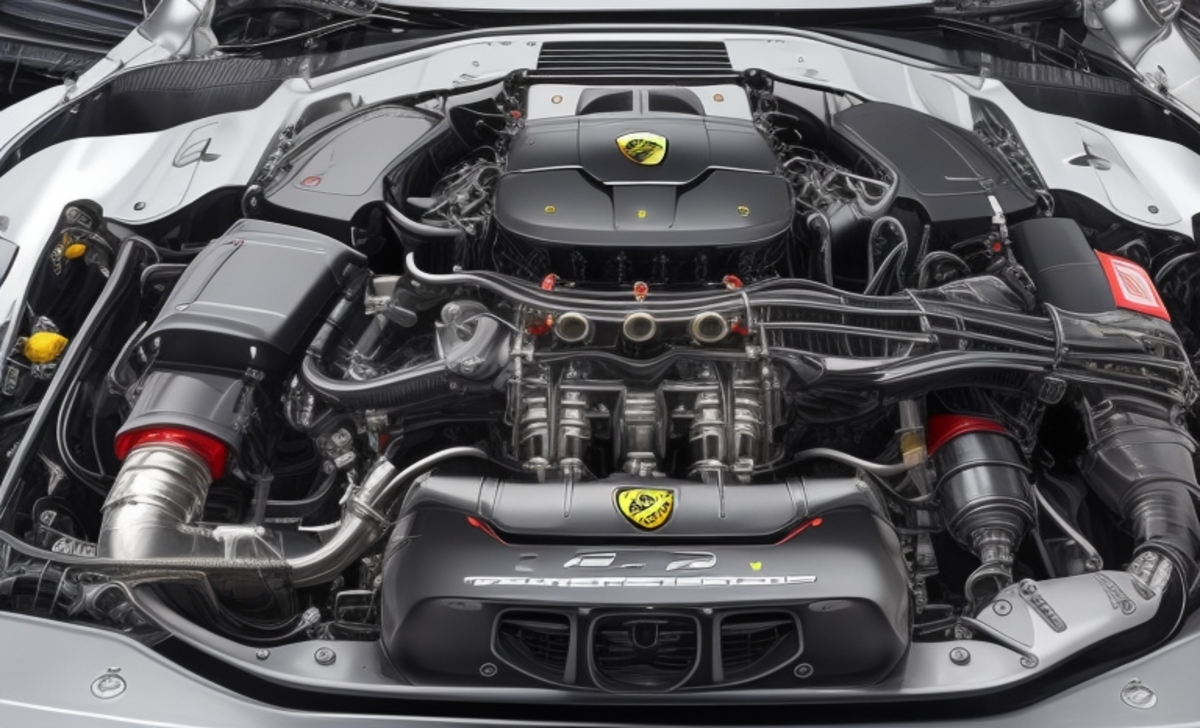
Type
V8, Twin-Turbocharged
Key Attributes
This engine is celebrated for its high horsepower and impressive fuel efficiency relative to its power output, particularly in performance cars like the Ferrari 488 GTB.
This engine’s twin-turbocharged design reduces turbo lag while delivering exhilarating acceleration, and it’s noted for smooth exhaust notes even under high pressure. Ferrari’s engine design focuses on minimizing exhaust gas recirculation, enhancing throttle responsiveness, and offering unparalleled performance.
Why It’s Great
The 3.9-litre V8 represents Ferrari’s commitment to car engine excellence, balancing power and fuel economy while retaining Ferrari’s signature roar.
2. Ford 1.0-Litre EcoBoost
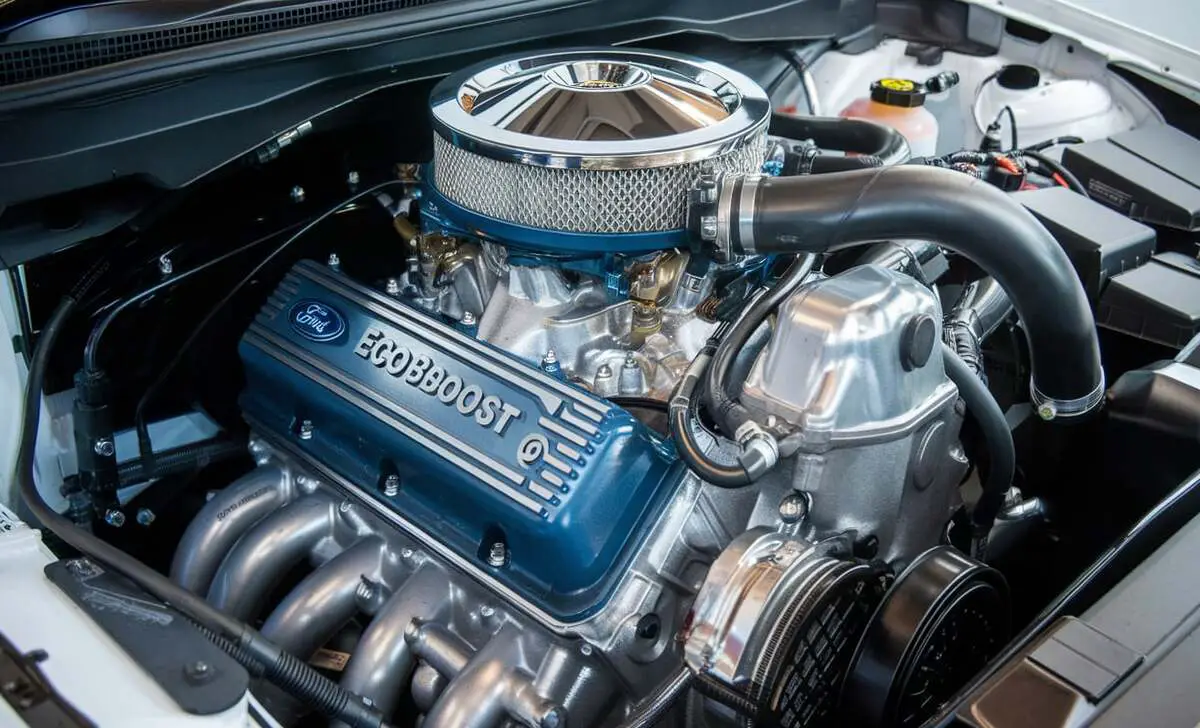
Type
Three-cylinder, Turbocharged
Key Attributes
Ford’s 1.0-litre EcoBoost showcases how smaller engines can achieve powerful results. This turbocharged engine maximizes fuel efficiency by using direct fuel injection and a turbocharger, making it ideal for drivers seeking fuel economy without sacrificing power. The EcoBoost’s compact size helps meet stricter emission standards while providing performance on par with some larger engines.
Why It’s Great
This reliable engine remains popular among Ford’s line of production cars, earning top car reviews for its balance of power and efficiency.
3. BMW M 3.2-Litre Straight-Six
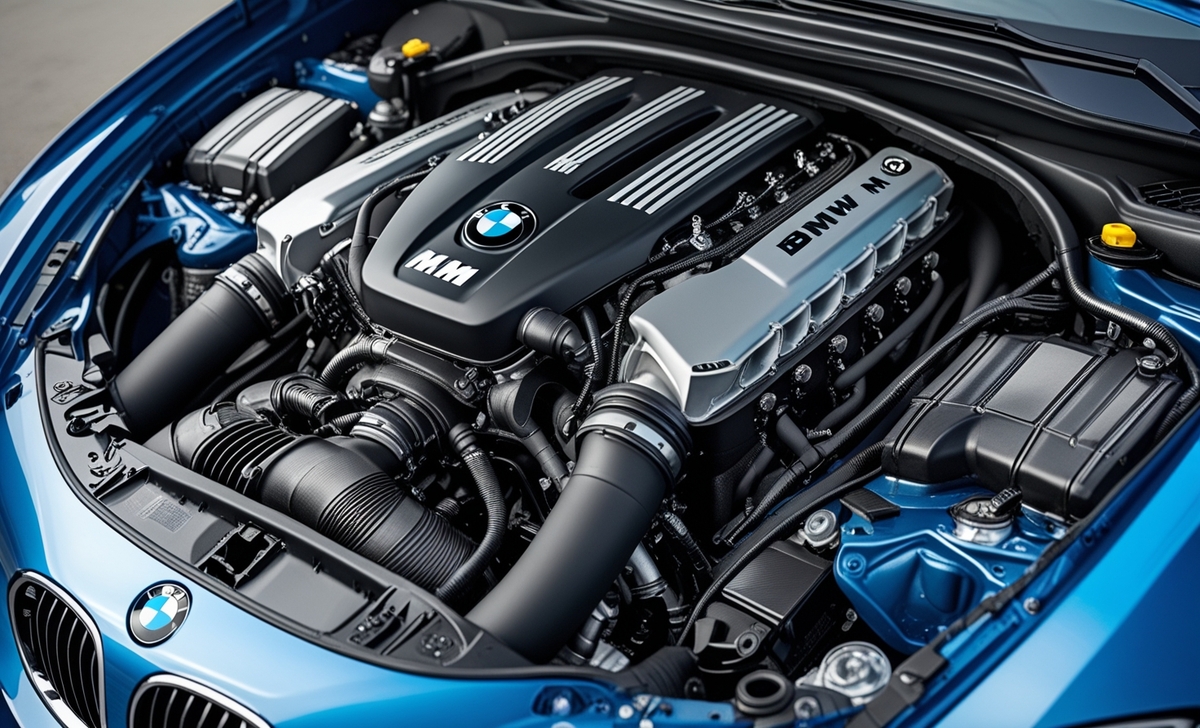
Type
Six-cylinder, Naturally Aspirated
Key Attributes
Known for powering the BMW M3, this naturally aspirated engine is a favorite among enthusiasts. Its cylinder configuration allows for a smooth and linear power curve, with remarkable engine performance and minimal vibrations. Featuring lightweight aluminum cylinder heads, it demonstrates modern engine durability and offers a fantastic balance of reliability and performance.
Why It’s Great
This engine is known for its long-lasting reliability and has set a high standard for performance in sports cars.
4. Volkswagen 1.4-Litre TSI Twin-Charger
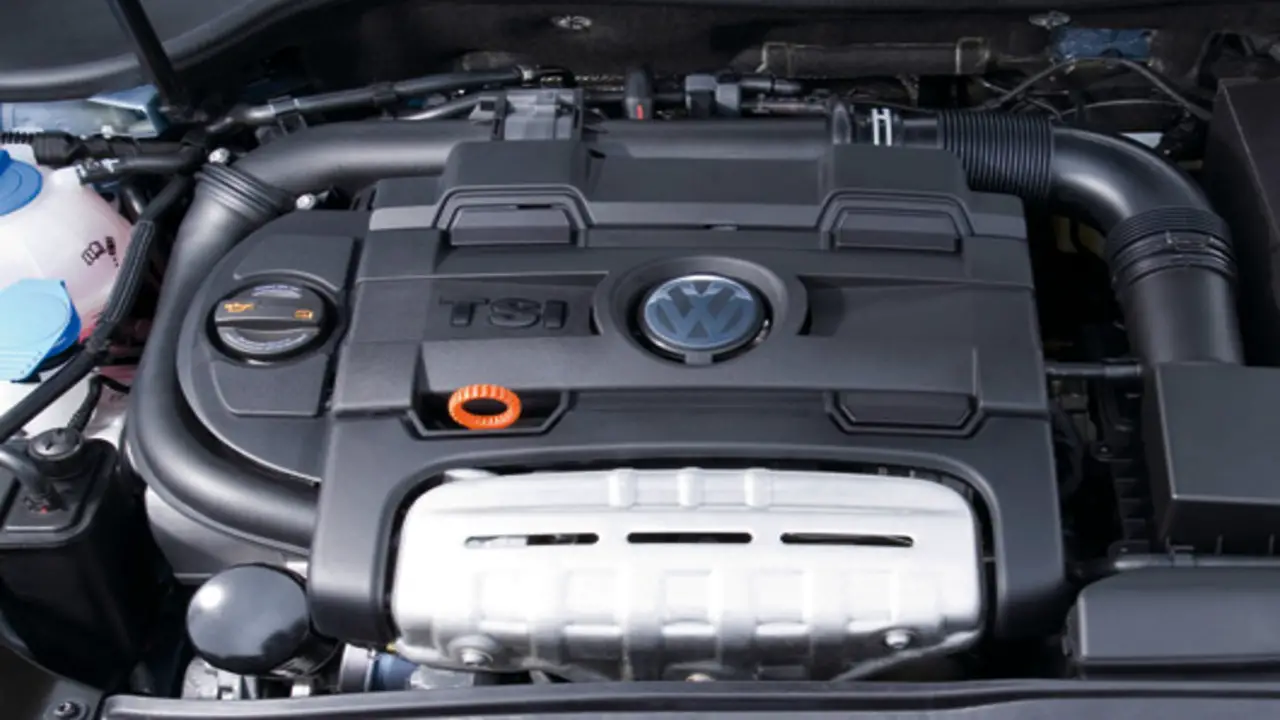
Type
Four-cylinder, Turbocharged and Supercharged
Key Attributes
Volkswagen’s TSI engine is innovative for using both a turbocharger and a supercharger, providing strong low-end torque and high-end power. This combustion engine has made a name in fuel economy while remaining versatile across various car manufacturers and models.
Why It’s Great
The TSI combines both fuel efficiency and a low-emission footprint with impressive performance, achieving success in Volkswagen’s lineup and cementing its place in modern car engines.
5. Toyota 1.5-Litre Hybrid Synergy Drive
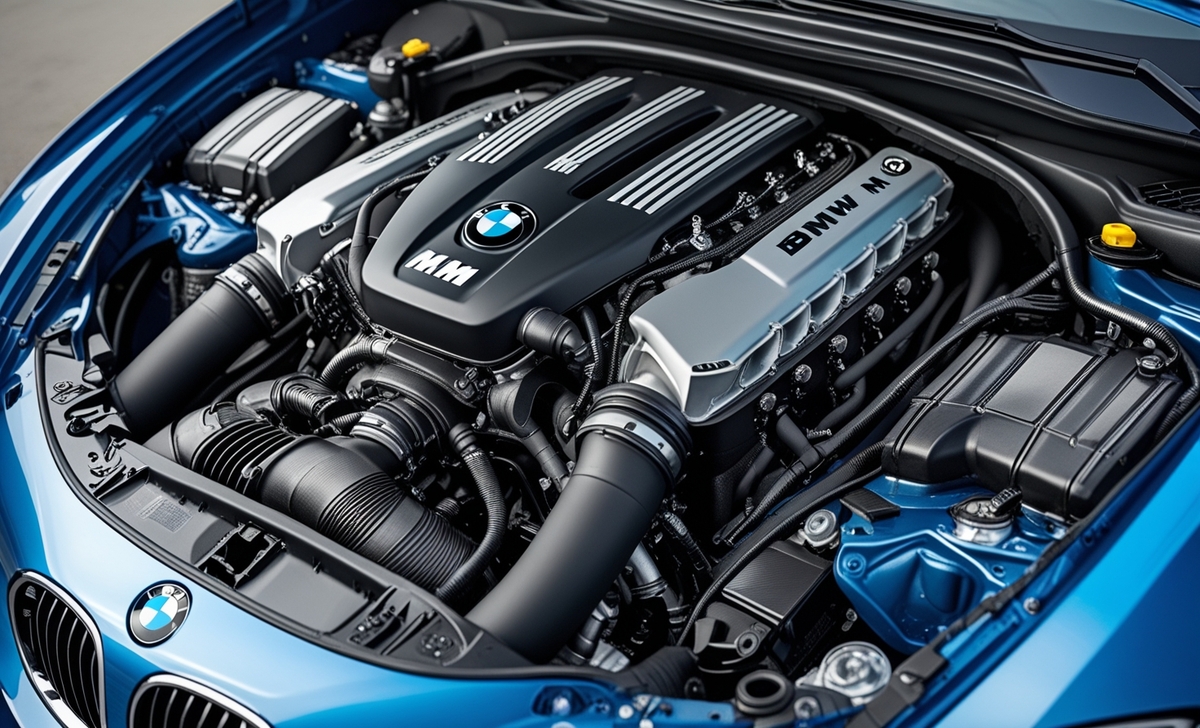
Type
Gasoline-Electric Hybrid
Key Attributes
Toyota’s hybrid system combines an efficient gasoline engine with an electric motor, leading the way in sustainable transportation with its low emissions and impressive fuel economy. The synergy drive is particularly effective in urban environments, where the electric engine can operate at low speeds, providing a reliable and eco-friendly alternative to traditional combustion engines.
Why It’s Great
Toyota’s hybrid system is highly regarded for its reliable engine and longevity, proving that hybrids can meet the demands of modern driving without compromising on efficiency.
What Makes An Engine Great?
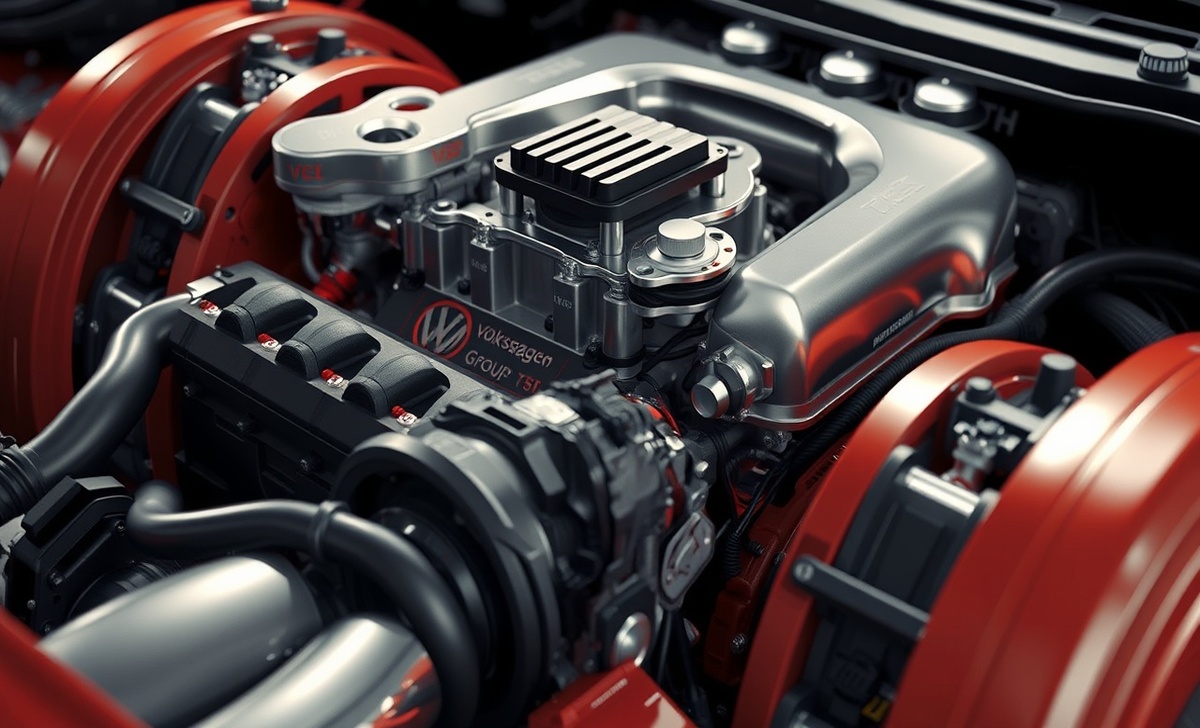
The best engine combines performance, reliability, and efficiency. Here are some examples of engines often cited as the great engine:
BMW Engines: Known for their engineering excellence and performance, BMW’s inline-six engines deliver power and smoothness that enthusiasts appreciate.
Ford EcoBoost: This range of turbocharged engines has gained acclaim for their balance of power and fuel economy, making it popular among car manufacturers for various models.
Volkswagen Group’s TSI Engines: These engines combine turbocharging with direct fuel injection, offering a potent mix of power and efficiency.
Conclusion
Identifying the best engine depends on various factors, including performance needs, reliability, and the type of vehicle. Whether it’s a powerful V8 engine roaring in a sports car or an efficient four-cylinder engine in a compact model, each engine type has its strengths.
As automotive technology continues to advance, the debate about which engine reigns supreme will evolve alongside the industry, particularly with the growing influence of electric vehicles.
FAQs
1.What Is The Most Powerful Engine Currently Available?
The most powerful engines are often found in high-performance sports cars, such as the Ferrari 3.9-litre twin-turbo V8.
2.Are Diesel Engines More Efficient Than Gasoline Engines?
Yes, diesel engines typically offer better fuel efficiency and torque, making them ideal for heavy-duty applications.
3.What Are The Advantages Of Turbocharged Engines?
Turbocharged engines, like General Motors’ V6 engine, provide maximum engine speed and power from smaller engine designs, enhancing both performance and fuel economy.
4.How Do Electric Engines Differ From Traditional Combustion Engines?
Electric cars utilize a battery-powered motor, bypassing the fuel system and exhaust valve of traditional engines, delivering instant torque and lower emissions.
5.What Role Does Fuel Injection Play In Engine Performance?
Fuel injectors optimize the air-fuel mixture in the fuel system, improving combustion, engine power, and fuel consumption efficiency.
6.Which Engine Car Is Best?
Cars like the BMW engine-powered M3 or the hybrid engine-powered Toyota Prius excel in international engine standards, combining performance and efficiency.
7.Which Car Brand Has The Best Engine?
BMW engines are renowned for reliability and power, while Volkswagen Golf engines and Land Rover models are praised for durability and engineering.
8.What Is The Strongest Car Engine?
The strongest engines include Ferrari’s 3.9L V8, General Motors’ V8s, and hybrid engines known for blending maximum torque with eco-friendly fuel consumption.
9.What Are Some Of The 10 Best Engines?
The list often features BMW engines, Volkswagen Golf’s TSI, and Toyota’s Hybrid Synergy Drive for their innovative cylinder head designs and performance at high speeds.
10.What Makes An Engine Reliable?
Reliable engines, such as Land Rover’s petrol engines, excel in design, offer durable cylinder heads, and maintain consistent engine speed and performance.